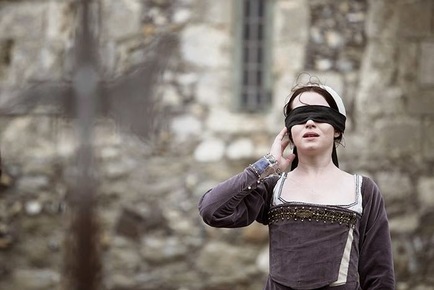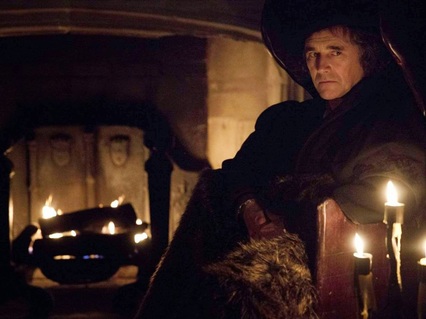Wolf Hall review
"An ending so great we forgot we knew it was coming"
writes Lucy Mangan, she continues.
"Six hours and a single sword swipe, and the king’s Great Matter is finally resolved. Last night saw the end of Anne Boleyn, and the TV adaptation of Hilary Mantel’s books Bring up the Bodies and Wolf Hall (BBC2). There wasn’t a moment of Peter Kosminsky’s direction or Peter Straughan’s deft, beautifully elliptical writing that left you wanting for anything throughout this six-week splendour. But the final 15 minutes – with Anne’s death interspersed with flashbacks to Thomas Cromwell’s typically reluctant, typically thorough, inspection of the scaffold – were exceptional.
How do you dramatise a world that is mostly interior calculation, silent power plays and noiseless traps? By assembling a
cast in which there is not one weak link. Try Jonathan Pryce as Cardinal Wolsey; Anton Lesser as the unflinching,
infuriating Thomas More; and Damian Lewis as Henry (“Could you give us the kind of charismatic kingship that lasts
down the ages with a side order of ego and caprice that could usher in a religious reformation? But we need to be able
to love him, too, else this whole thing makes no sense?” “Coming right up”). And, as if that weren’t enough, Claire Foy
moving flawlessly from bold, brave and brilliant bitch to sacrificial lamb as Anne Boleyn; and, of course,
Mark Rylance as the indefatigable, implacable, terrifying, awe-inspiring Cromwell, delivering a performance
that will probably require the invention of new awards.
Even the very smallest roles were played brilliantly, such as this final episode’s executioner, established by
Philippe Spall, within the space of a few minutes and fewer lines, as a man with professional pride and no little compassion; the person you would want on your side if you ever had to mount the scaffold to clear the way for Jane Seymour.
Kosminsky and Straughan did this with a script that made you weep with its shining rigour and boggle at the amount of
eight it was seamlessly structured to bear, every line doing double duty, without it ever creaking under the strain. And by resisting the directorial temptation to yomp through the tale at speed, instead trusting in the talent at play and the viewers
at home, to create something so compelling that – as with Mantel’s books – you forgot that you knew what must come
next, and watched life unspool as if it had never been lived before."



 RSS Feed
RSS Feed
